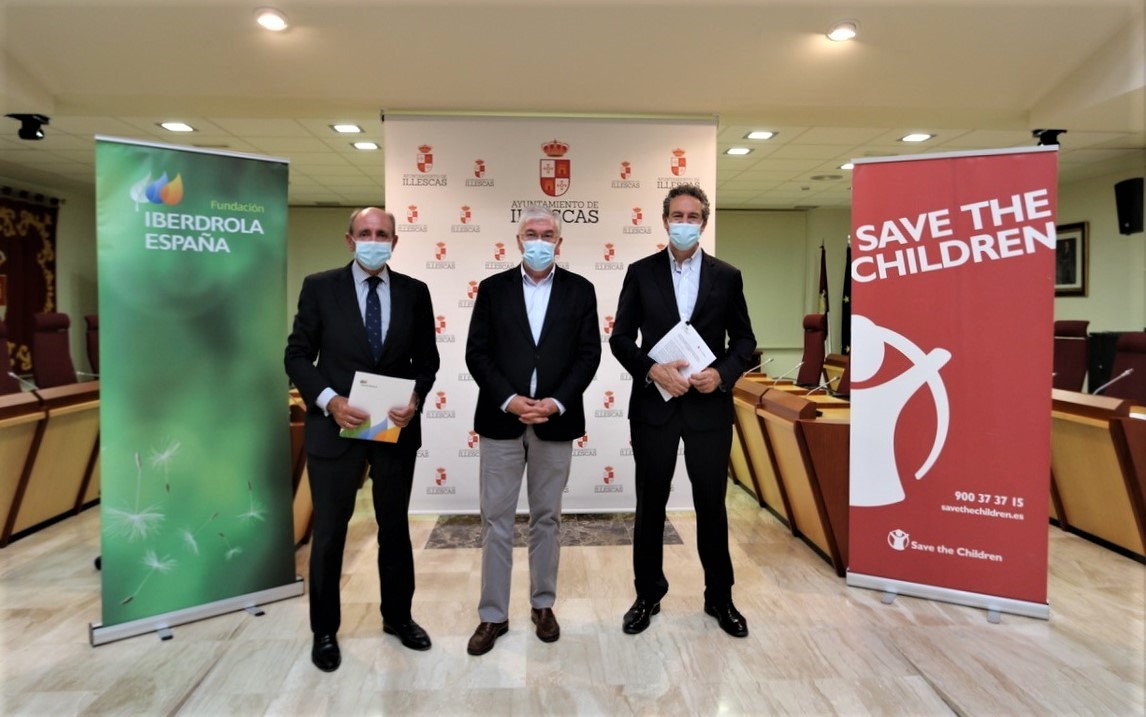Iberdrola and Save The Children will work together in the social and labor insertion of young people
- Iberdrola’s Foundations Committee agrees to strengthen employability and inclusive training, a program to which the company and its Foundation in Spain have allocated 14 million euros in the last five years.
Iberdrola, through its Foundation in Spain, and Save the Children will work together on the social and labor insertion of young people. This will be agreed at the forthcoming signing of the collaboration agreement between the two institutions to promote the employability of groups facing social exclusion or situations of poverty.
The initiative, in collaboration with the City Council of Illescas (Toledo), will be developed at the Center for Family and Adolescent Care of the municipality, where dozens of young people between 16 and 30 years of age will acquire the necessary skills to get a job and keep it.
The collaboration agreement is aligned with the decision of Iberdrola’s Foundations Committee, agreed at its last meeting, to strengthen employability and inclusive training among young people. An area to which the energy company and its Foundation in Spain have allocated 14 million euros in the last five years.
Training in professions of the future
Iberdrola and its foundations around the world work on different programs to train people at risk of exclusion in professions of the future. Among the initiatives are:
- The European program Re-skilling 4 Employment of the European Roundtable of Industry (ERT), co-led by Iberdrola, to train people at risk of losing their jobs due to the impact of the digital divide in new skills. The project aims to promote between 2.5 and 5 million jobs in Europe and between half a million and 1 million in Spain by 2030 among the long-term unemployed, young people and people over 45 years of age.
- Iberdrola also has an International Master Scholarship Program, which provides grants to young people to receive training in fields such as engineering, science and technology in institutions around the world. Since its launch, close to 1,000 young people have benefited from this support from Iberdrola.
- The Social Program of Fundación Iberdrola España also focuses on this area of initiatives, with projects such as ‘En clave de igualdad’, developed by the Candelita Association (Madrid), which contributes to improving the employability of women in situations of serious socioeconomic vulnerability, providing them with support to acquire the necessary skills for their employability.
- Through its Foundation in Spain, Iberdrola and the Gizakia Foundation (Bilbao) work on the development of labor training itineraries for women, with the aim of reducing inequalities and developing their socio-personal and labor-training skills to place them in a favorable position for employment.
- In Spain, the company supports the ‘YO PUEDO’ initiative, in collaboration with the Adecco Foundation’s #EmpleoParaTodos program, which prepares people with intellectual disabilities to access and maintain a job.
- In Brazil, the company’s subsidiary Neoenergia, has since 2019 the Electricians School for Women; a program focused on boosting the employability of women in the electricity sector. The initiative has been recognized by the United Nations WeEmpower program for its contribution to the empowerment of women through education and professional development. Programs to promote STEM professions among women are also being developed in countries such as Mexico and Spain.
About Iberdrola
Iberdrola is one of the leading global energy companies -third in the world in terms of market capitalization and a leader in renewables-, which is spearheading the energy transition to a low-emission economy. The group supplies energy to close to 100 million people in dozens of countries and carries out its renewables, networks and commercial activities in Europe (Spain, the United Kingdom, Portugal, France, Germany, Italy and Greece), the United States, Brazil, Mexico and Australia, and maintains markets such as Japan, Ireland, Sweden and Poland, among others, as growth platforms.
With a workforce of more than 37,000 people and assets in excess of 122,518 million euros, in 2020 it posted revenues of more than 33 billion euros and a net profit of 3,611 million euros. The company contributes to the maintenance of 400,000 jobs in its supply chain, with annual purchases of €14 billion. A benchmark in the fight against climate change, it has allocated more than 120 billion euros over the last two decades to building a sustainable energy model based on sound environmental, social and governance (ESG) principles.


